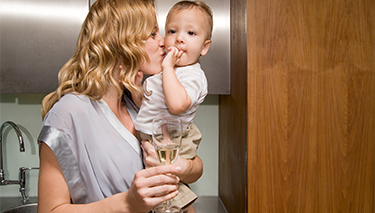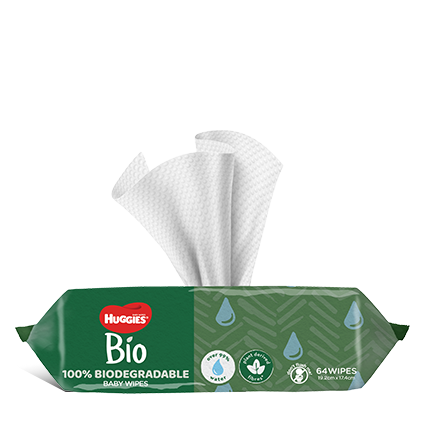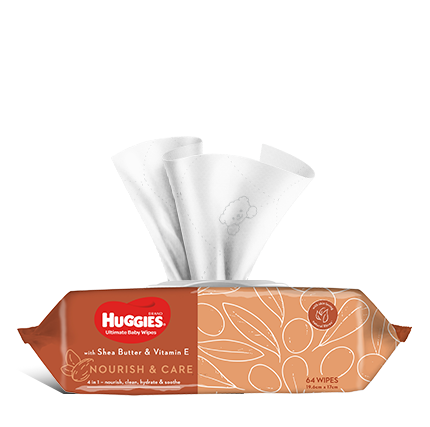There have always been lots of theories regarding the things breastfeeding mothers should and shouldn’t eat. Hard scientific evidence has yet to prove that a restricted diet is necessary during periods of lactation, unless there are specific medical circumstances. However, it is true that some babies seem to react to particular foods which their mothers eat. Working out which ones are the culprits can take time and a process of elimination.
From the time of your baby’s first breastfeeds, it is best to assume that they won’t have any problems. Unless you have a strong family history of sensitivities or have an older child with proven allergies and sensitivities, the general recommendation is to eat a well balanced diet and not restrict or limit any foods. Those rich in calcium, iron and iodine are particularly beneficial, as they tend to be the nutrients which most commonly become low during periods of lactation. Likewise, carbohydrates and protein are useful to maintain energy, and for cell renewal.
Breastfeeding Diet Tips
- There is no need to “eat for two” despite what your appetite may be telling you. A breastfeeding mother’s body becomes very efficient at metabolising her food intake to produce sufficient milk for her baby.
- Excess kilojoules will still be stored as fat, and breastfeeding should not be seen as an excuse for eating lots of junk food. It is a fact that some women find they lose a lot of weight when they are breastfeeding and don’t need to worry too much about what they eat. Others are not so lucky and find they need to be very careful about their dietary intake so they can resume their pre-pregnancy weight within 6-12 months after their baby is born.
- Fat stores built up during pregnancy are used as energy reserves during lactation. However, if you have not gained a lot of weight this does not mean you won’t be able to breastfeed.
- It is generally not recommended that lactating women put themselves on a kilojoule restricted diet. This can have an effect on milk supply, as can undertaking a vigorous exercise programme.
- Adequate fluid intake is important. Tea, coffee and cola drinks act as diuretics and increase urine output. Plain water, juices and de-caffeinated teas are fine.
- Drink to satisfy your thirst and train yourself to have a drink of water every time you sit down to feed your baby. An average daily amount is 2.5-3 litres of water a day, though this varies according to activity level and individual requirements. Filtered or bottled water may not contain fluoride which is useful in the prevention of tooth decay. Tap water from a monitored town water supply is fine.
- Avoid skipping meals. In the busy, early days of mothering it is easy to lose track of time. Breakfast, lunch and dinner with a couple of snacks in-between will help support your breasts to produce milk.
- Breastfeeding mothers can crave sugar and sweet foods. Remember, eat any foods in moderation and don’t go overboard. Satisfy your cravings and avoid spoiling the pleasure of eating some treats by feeling guilty.
- Make yourself a snack which you can eat while you are sitting down to breastfeed. This may be one of the few times each day when you get a chance to, so make the most of it.
- Some babies seem to detect a change in the taste or odour of their mother’s milk when garlic, onions or strong/spicy foods have been eaten. If you find your baby is fussing and not as keen to feed as they usually are, then you may want to review what your intake has been the day and evening before.
The current recommendation from The Australasian Society of Clinical Immunology and Allergy www.allergy.org.au is very clear that mothers do not need to restrict their diets when they are breastfeeding. As a measure for preventing the development of allergic disease this has not been proven to be effective or necessary. For babies who have atopic eczema and show signs of being allergic, then avoiding some foods may be useful. But in order to do this correctly, medical advice is necessary. Not all eczema is due to food allergy and it is important not to assume it is the cause.
Women who restrict their diets during breastfeeding are at risk of developing nutritional deficiencies, which is why it is so important to maintain a well balanced, sensible diet. If you are unsure about what foods you should be including in your diet, speak with a dietician. Check the Dietician’s Association of Australia Website for help in locating one close to your area.
Allergies: What to Look Out For
Some babies can be particularly sensitive or allergic to foods which filter through via breast milk. The most common reactions are to foods such as seafood, cow’s milk and dairy foods, peanuts, tree nuts and eggs. Generally the reaction is seen in the baby’s behaviour as they become more unsettled and grizzly, with a change to their feeding and sleeping patterns.
Some mothers find that keeping a food diary is useful in keeping track of what they have eaten. It is unclear exactly how long it takes for food to be digested and metabolised into breast milk, but the time frame of 4-12 hours is a realistic estimate for most women.
Symptoms of Allergy or Food Sensitivity in Breastfeeding Babies
- Unsettledness, crying and colicky type behaviour.
- Not responding to the usual comfort and soothing measures.
- A rash which does not appear to be related to illness.
- Frequent, loose bowel motions which are different to the baby’s usual pattern.
It is important not to assume your baby’s unsettledness is because they are reacting to something you have eaten. There are lots of causes for crying. The usual comfort measures of rocking and calming, bathing and massage, extra feeds and going for a walk can all be useful.
What Should I Be Eating?
- Bread, cereals, whole grains as well as rice, pasta and noodles. These will give you energy to sustain effort throughout your day and supply you with fibre.
- Dairy foods such as milk, yoghurt, cheese and dairy desserts. These will supply your body with calcium and phosphorus for strong bones and healthy teeth.
- Meat, fish, eggs and poultry. Protein and iron are the primary nutrients found in these animal foods.
- Fruits, vegetables, juices and legumes will supply vitamins and minerals. These are essential for healthy cell function and prevention of illness.
- A handful of nuts each day, a banana, a bowl of cereal or some toast are all quick snacks which can be eaten on the go.
- Use your hunger to guide when you should eat. Avoid becoming so hungry that you just grab whatever food is quick and easy. If you can’t get to the shops to stock up on food supplies, then ask your partner to shop, consider on-line shopping or ask a friend or family member to pick up some groceries for you.
Alcohol
We used to believe that when breastfeeding mothers drank alcohol, they would produce more milk. The current advice is that there is no level of alcohol which is ultimately considered safe for lactating mothers. The level of alcohol in breast milk closely matches the mother’s blood alcohol level. Alcohol enters the breast milk within 30-60 minutes of drinking an alcohol-containing beverage.
- Avoid drinking regularly or heavily when you are breastfeeding, and consider expressing your milk beforehand and offering it to your baby.
- If you do choose to drink alcohol be aware that for every standard drink your baby should not be breastfed again for 2-3 hours.
- Avoid drinking any alcohol in the first three months of your baby’s life. This is because their liver and intestinal organs are so immature.
- If you or your partner have been drinking do not sleep with your baby.
- If you choose to drink, then eat before you do; drink when eating a meal and choose low alcohol alternatives.
- If you are planning to drink alcohol, make sure you have made arrangements with another responsible adult to care for your baby.
Check www.breastfeeding.asn.au for more specific information.
Last Published* May, 2024
*Please note that the published date may not be the same as the date that the content was created and that information above may have changed since.




















